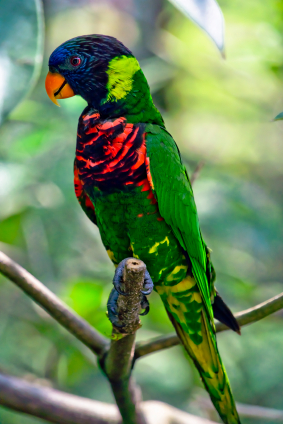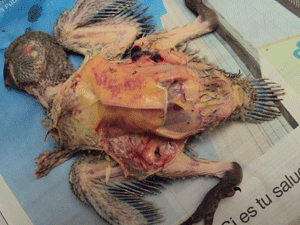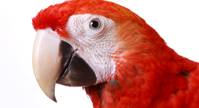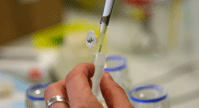Avian Polyoma Virus (APV)
Animal Genetics Inc. offers DNA and Elisa testing for Avian Polyoma Virus (APV). APV is considered one of the most threatening infectious diseases for young psittacines and a major threat to nurseries.

Description:
Avian Polyoma Virus (APV), also referred to as Budgerigar Fledgling Disease, is a member of the Papovavirus family. Polyoma virus has a diameter of 40-50 nm, and contains a double-stranded DNA genome of approximately 5,000 basepairs.
This pathogen is considered one of the most significant threats to caged birds around the world. This highly-infectious disease affects most, if not all, parrot species. Polyoma seems to be most problematic among neonates (young birds) between the ages 14-56 days. Young birds often die, while adult birds can develop a certain level of immunity. Polyoma is believed to have an incubation period of approximately two weeks or less.
Transmission:
The disease can spread from one bird to another via feather dust, feces, aerosols, and parental feeding of chicks. APV can also be transmitted via direct contact or contact with infected environments (incubators, nest boxes, etc.).
Birds that are infected but do not have obvious signs of infection are often responsible for spreading the virus to an aviary or bird store.
Adult birds may be carriers of APV, who do not show symptoms but are able to pass the disease to others.
Symptoms:
Symptoms include swollen abdomen, depression, loss of appetite, anorexia, weight loss, delayed crop emptying, regurgitation, diarrhoea, dehydration, feather abnormalities, hemorrhages under the skin, dyspnea, polyuria, ataxia, tremors, paralysis, and acute death.
Many young birds under 12 weeks of age die without any clinical symptoms. Adult birds may die of secondary infection from bacterial, viral, fungal, or parasitic pathogens.

Prevention:
Isolate all birds shedding the disease. Disinfect all contaminated surfaces with an oxidizer such as chlorine bleach (Polyoma virus is resistant to many disinfectants).
Note: Alcohol does not work as a disinfectant as it is not an oxidizer.
A vaccine is available, however this option may cost as much as $40-60 per bird. Additionally, booster shots are required each year and the effectiveness of the vaccine in younger birds is in question.
Quarantine all new birds and use nested primer PCR testing to determine whether or not birds are infected.
Sample Type:
When testing individual birds, a blood card or blood vial can be submitted in conjunction with a cloacal swab. If the sample tests positive, then the bird should be placed in quarantine and re-tested in 4-6 weeks. If the bird tests negative the second time, then a third test is recommended.
Post-mortem samples of liver, spleen, or kidney tissue in a sterile container with alcohol may be submitted. Environmental testing using swabs of aviaries, counter tops, fans, air-filters, nest-boxes, etc. is extremely effective in determining the presence of Polyoma DNA in the environment.
Note: It is recommended to submit both a blood card and cloacal swab sample for analysis when possible.
Limitations:
As with any genetic test, new mutations may occur in the viral genome that could affect the assay. Therefore, it may be difficult to detect all subtypes. Sample collection plays a pivotal part in the overall accuracy of the test, so please use caution and follow the instructions carefully.
Submit a Sample for Testing:
To submit a sample download a test submission form at Downloads.
Cost per sample is $24.50. Please see our fee schedules below for bulk and combination rates.










